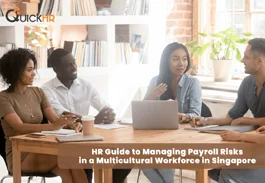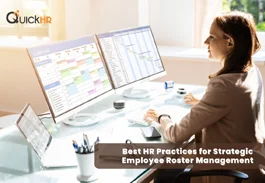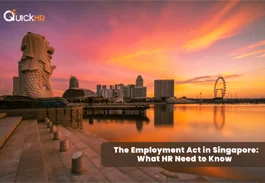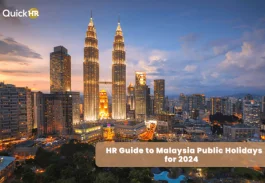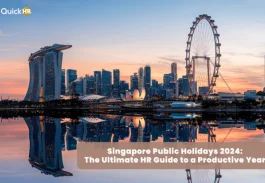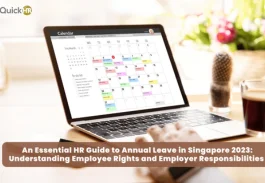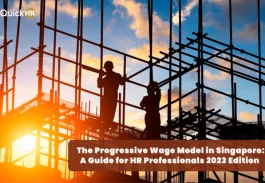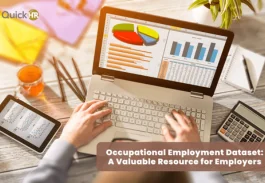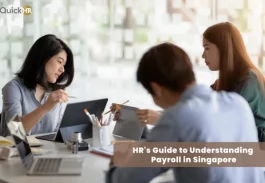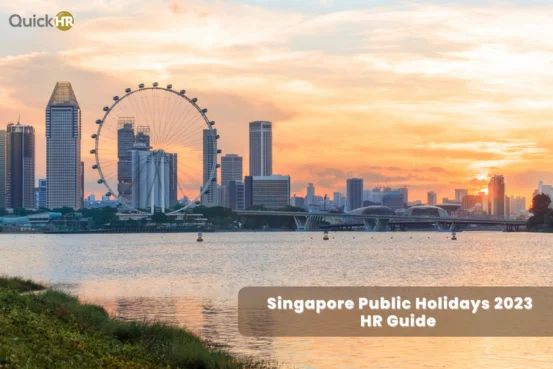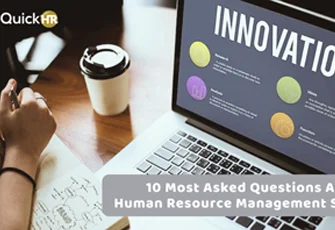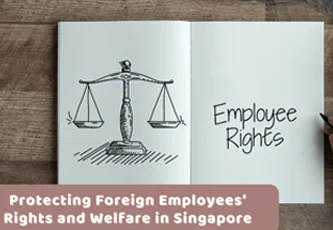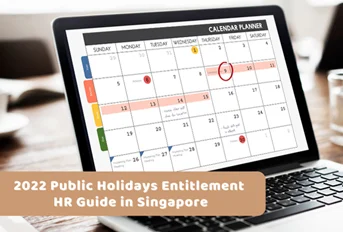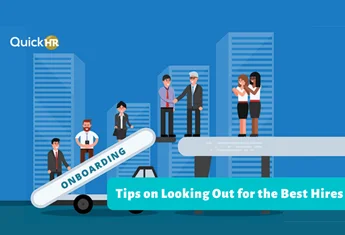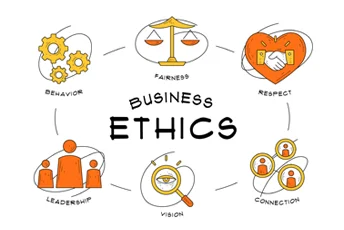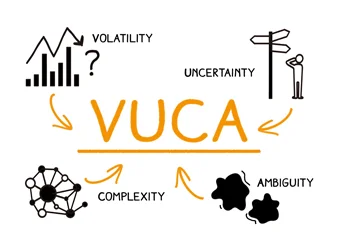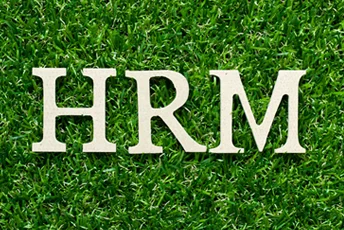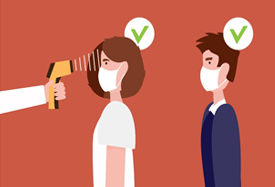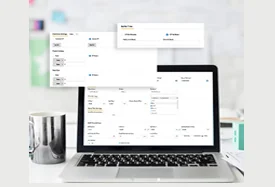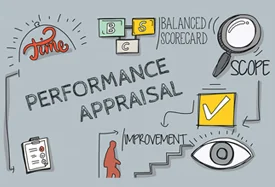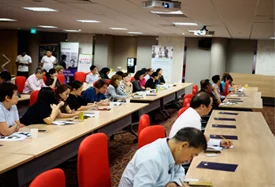
Work Injury Compensation Act (WICA) Singapore: The HR’s Guide
Posted on 2 November 2022 in Business | Anna Beatrice
With the rising workplace fatalities throughout the year, HR leaders play a vital role in ensuring good safety and health practices in the workplace. This involves maintaining regulatory compliance that falls under the Workplace Safety and Health (WSH) mandatory guidelines.
One of the most important WSH obligations HR needs to prioritise is the Workplace Injury Compensation Act (WICA) that protects both employees and employers when workplace incidents happen. Here’s everything you need to know about the Work Injury Compensation Act.
What is the Work Injury Compensation Act
The Work Injury Compensation Act (WICA) establishes a streamlined and simplified system that allows employees to make claims for work-related injuries or diseases without having to engage a lawyer and commence formal civil proceedings. [1]
However, employers remain liable for claims under both WICA and common law from all employees.
In accordance with WICA, all employers are required to acquire and maintain work injury compensation insurance to fulfil the responsibilities for compensation that may arise under the legislation.
💡Note: All insurers must be approved by the Commissioner of Labour before they can offer WICA-compliant policies.
Ensure WICA compliance and prioritise your employees' well-being
with QuickHR!
Who Are Covered under the Work Injury Compensation Act
The Work Injury Compensation Act (WICA) covers all local or foreign employees who are under a contract of service or contract of apprenticeship, regardless of salary, age role, or citizenship. [2]
However, there are some exceptions. It doesn’t cover the following:
- Independent contractors and self-employed individuals
- Domestic workers
- Uniformed personnel including members of the Singapore Armed Forces, Singapore Police Force, Singapore Civil Defence Force, Central Narcotics Bureau and Singapore Prison Service
Generally, an employee who suffers any injury from an accident arising out of and in the course of employment is eligible for compensation under the WICA.
With the advent of remote working arrangements, the Ministry of Manpower (MOM) has confirmed that employees will be able to claim compensation for an accident that took place outside the employer’s designated workplace (i.e., the office), as long as it arises out of and in the course of the employment, such as when an employee is working from home or at a client site.
Employees are also eligible to make a claim for accidents that happen outside of Singapore. This further shows that the company’s obligation to sustain a safe working environment doesn’t begin and end in the office.
Find out more here to see which scenarios are covered under WICA.
💡Note: Employees who have been infected with COVID-19 due to work activities or exposure arising out of and in the course of work will be able to claim compensation under the WICA regime. [3]
Who Can Claim for Work Injury Compensation
All eligible employees can make a claim under the Work Injury Compensation Act (WICA) if they have: [4]
- Been injured by an accident arising out of and in the course of employment.
- Been injured while on an overseas assignment.
- Contracted an Occupational Disease.
- Contracted a disease from exposure to biological or chemical agents at work.
Employees remain eligible to claim compensation even if:
- They no longer work for the employer or their work pass has been cancelled.
- The accident happened while they were on an overseas assignment.
- The accident happened while on a work-from-home or other flexi-work arrangement that they agreed with the employer.
Dependents of an employee who died due to a workplace accident can also make a claim on behalf of the employee. [2]
What You Can Claim under the Work Injury Compensation Act
Employees who are covered by the Work Injury Compensation Act (WICA) can claim for the following types of compensation benefits: [5]
- Medical leave wages – this is for days an employee was issued with medical leave or light duty, due to a work injury or disease.
- Medical expenses – this includes the employee’s hospital bills, medication and other charges, due to the work injury.
- Lump sum compensation – this is for the employee’s permanent incapacity, current incapacity or death.
The amount of compensation to which an employee is entitled under WICA depends on whether the employee suffers incapacity (permanent, current, or temporary) or dies as a result of the accident.
- Permanent incapacity is based on a doctor’s assessment after the medical condition has stabilised.
- Current incapacity may be based on the extent of incapacity at the 6-month mark as most injuries stabilise within 6 months from the date of the accident.
- Temporary incapacity refers to an injured employee being temporarily unable to perform work and earn usual wages after being placed on medical leave.
- Medical leave wages for working days covered by doctor-granted MC, light duty or hospitalisation leave, up to one year from the date of the accident.
- Medical expenses related to work accident for medical treatment received within one year from the date of the accident, or up to a maximum of $45,000, whichever is reached first.
Compensation for temporary incapacity consists of:
Click here to know more about the limits for each type of compensation.
What to Do during a Work Injury Claim
The claim process differs depending on the type of case. For fatal accidents, HR managers need to notify MOM as soon as possible and submit an accident report within 10 days from the date of the accident.
For non-fatal accidents, make sure to submit an incident report within 10 days from the date you were first notified of the accident. An employee needs to be hospitalised or given any instance of medical leave or light duty to be considered as a non-fatal accident. [6]
- After reporting the accident, the employer must continue to pay medical leave wages and medical expenses based on the Average Monthly Salary (AME). The designated insurer or MOM will send you a medical report form.
- Once the medical report form has been paid and sent to the hospital or clinic, the completed report will be sent to the designated insurer or MOM.
- Then, you'll receive the notice of assessment (NOA) or notice of computation (NOC) where the compensation amount will be included.
💡Note: If you’re waiting for payment from the insurance company, you must still pay the employee’s medical leave wages and medical expenses first, and get reimbursed later.
If they have an outstanding claim under the Work Injury Compensation Act (WICA), employers are not allowed to send their employees home against their wishes.
Key Changes to WICA in 2020
Several changes have been made to the WICA to further build a safe and responsible working environment for all employees and protect them from unfair compensation. [7]
-
From 1 January 2020, the minimum and maximum amounts have been increased in respect of compensation for death and total permanent incapacity (including current incapacity) as well as the maximum limit for medical expenses.
The range of compensation for death falls between $76,000 and $225,000. While the compensation for total permanent incapacity ranges between $97,000 and $289,000.
The medical expenses are set with a maximum of $45,000, or up to 1 year from the date of the accident, whichever comes first.
-
From 1 April 2020, the salary threshold for non-manual employees requiring work injury compensation insurance will be increased to $2,100, regardless of where they work. It will further increase to $2,600 from 1 Apr 2021.
Employers must still acquire insurance for all manual employees, regardless of salary.
-
From 1 September 2020, all employees who have been placed on light duties because of work injuries will be compensated for their lost earnings based on their average monthly earnings.
Every employee on outpatient or hospitalisation sick leave will continue to be compensated for their lost earnings.
-
From 1 September 2020, employers are required to report all work-related medical leave or light duties to MOM.
Employers are likely to be affected by these changes to WICA even while many of their employees continue to work from home.
Conclusion
For HR managers, it's important to prioritise the employees' well-being by maintaining regulatory compliance with the WICA policies. Keep yourself updated with the significant policy changes and review relevant employment guidelines regarding work-related injuries. Let us all build a better world that enhances employees’ health and safety in the workplace.
- [1] https://www.mom.gov.sg/workplace-safety-and-health/work-injury-compensation/what-is-wica
- [2] https://www.mom.gov.sg/workplace-safety-and-health/work-injury-compensation/who-is-covered
- [3] https://www.mom.gov.sg/faq/work-injury-compensation/can-i-claim-wica-compensation-for-covid-19-infection
- [4] https://www.mom.gov.sg/workplace-safety-and-health/work-injury-compensation/eligible-claims
- [5] https://www.mom.gov.sg/workplace-safety-and-health/work-injury-compensation/types-of-compensation
- [6] https://www.mom.gov.sg/workplace-safety-and-health/work-injury-compensation/employers-what-to-do-during-a-claim
- [7] https://www.mom.gov.sg/workplace-safety-and-health/work-injury-compensation/changes-to-wica-in-2020
Enjoying this content? Subscribe and we’ll send the latest updates and special offers directly to your inbox.
